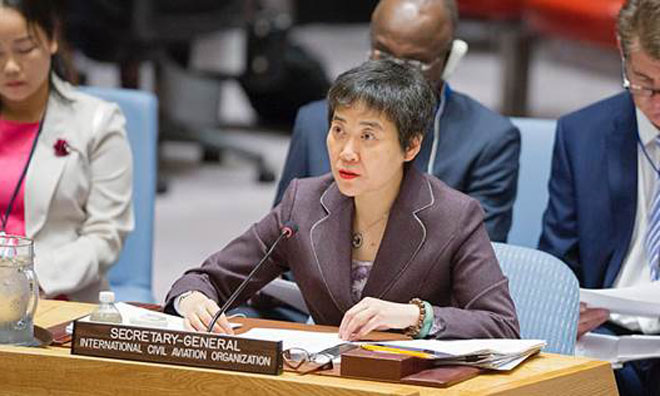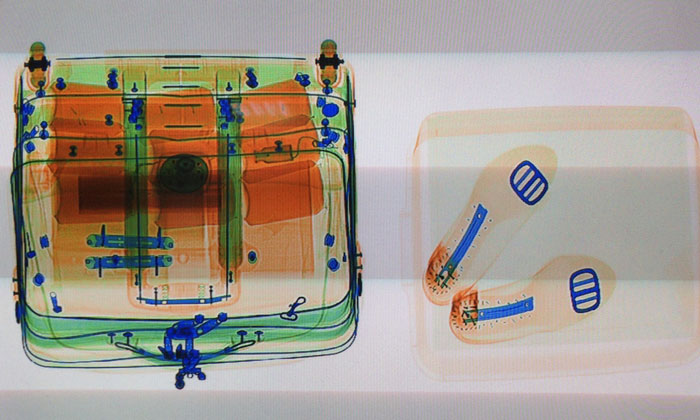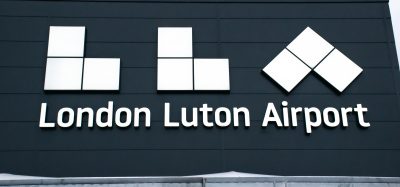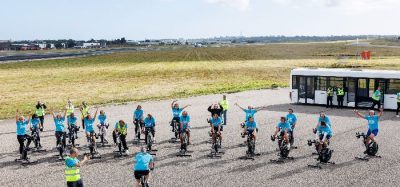How to create the next generation of aviation leaders | Leadership Series
Posted: 13 February 2017 | Neville Hay | 1 comment
Why and how do we invest sensibly in leadership in the aviation industry? Neville Hay explores.


To open International Airport Review‘s ongoing ‘Leadership Series’ during which we will be asking leading experts in the industry to offer us insight into challenges and innovations facing aviation and the airport industry, we ask security expert Neville Hay why aviation is in dire need of leadership, a topic we are particularly engaged in covering at present.
When you are in any position of responsibility you will be judged by your outcomes.
So, what makes a good leader?
Aviation is a growth industry, and in my short time I have seen individuals come and go or placed in positions to fill a gap without the necessary experience. Individuals are often overlooked while someone is brought in from outside with little or no experience of aviation and how the industry works.
Join us live: Shaping the Next Generation of Hold Baggage and Air Cargo Screening
Join us live for an insightful webinar on 11th December at 14:00 GMT, in collaboration with Smiths Detection, as we explore the strategic balance of operational efficiency, regulatory compliance, and sustainability in high-volume security environments.
This session offers a focused look into future-proofing your security strategy.
Key learning points
- Cost Reduction: Strategies to minimize bag travel time while simultaneously reducing operational costs.
- Regulatory Roadmap: Insights into the next wave of regulatory changes and their impact on future investment decisions.
- Sustainable Systems: Practical approaches to building sustainability into security systems and lowering the total cost of ownership (TCO).
- Scalable Solutions: Real-world examples of scalable systems supporting current airport growth and preparing for tomorrow.
Register now for expert insights, case studies, and actionable strategies on operational efficiency!
Looking towards the future, aviation needs good leadership, leadership that will lead the industry and leadership to lead the operation from the ground up, from customer services, ground operations, training, facilitation and aviation security.
We need someone who will look at aviation holistically to ensure that sources of talent are identified and provided with an opportunity to secure good leadership from an early stage.


When you are in any position of responsibility you will be judged by your outcomes – so what makes a good leader?
If we are to first take the Oxford Dictionary definition of a leader: “The action of leading a group of people or an organisation, or the ability to do this.”
Having recently retired from 32 years of operational policing as an Operational Sergeant with 27 years in that rank there has not been much in terms of policing that I did not experience. The last 8 years of this tenure I was involved in aviation security and several counter-terrorism awareness programmes.
Aviation security and policing certainly aren’t worlds apart.
The aviation industry itself employs security providers whilst airports often invest in developing their own in-house, trained security teams such as that at London Gatwick.
- With growth and demand outstripping the availability of resources, how does the industry then hold onto, let alone develop, talent and good managers who will lead the aviation industry?
- How do we ensure personal development?
- How do we share, exchange and have recognised qualifications standardised throughout the industry to produce global leaders for the future of aviation?
The good thing about retirement is that one can say certain things within reason that may otherwise have prevented one’s chance of promotion or position – something I have always found very frustrating. If you do not agree with something, it is easy to be seen as not toeing the line, or voicing an opinion not in keeping with the vision or objective. You may then become viewed as obstructive when really your experience may hold the golden nugget or key to driving innovation. The creative thinker. Perhaps the encouragement of this sort of an individual is what the industry now needs.
Aviation has an opportunity to develop and change – an opportunity to listen to all and by that I mean involve those with experience from the operational and tactical levels, not just from the strategic side of the business. We are certainly all aware of the ‘old boy network’ and how that has worked in the past.
How do we share, exchange and have recognised qualifications standardised throughout the industry to produce global leaders for the future of aviation?
This brings me to a quality in a person I view as important in leadership and that is to stand up and have a voice. I believe in constructive criticism – not moaning for the sake of it.
As an individual, no matter your position or level (though more so when in a position of responsibility), it is important to speak up, to offer a rational and reasoned observation, argument or offer a different direction. As individuals, we don’t always know best. There have been times in my career when I have said to others above my own position in a quiet and friendly way: “Listen boss, do you really want to go down that route?”
A great quality in a leader and is the ability to listen to others and not be afraid to change one’s mind or acknowledge the superiority of another’s.
The need for standardisation
The industry has the three players, ICAO, IATA and ACI. They make up a large part of the global network that represents the industry. Therefore, it makes sense to have a global education system with qualifications recognised throughout the world which cross-pollinates all three. The three amigos offer various courses and training at a variety of locations.


ICAO’s role will be extremely significant
Many years ago when I left school I had the opportunity to choose from 5 apprenticeship providers in electrical and electronic engineering, I chose working in power stations and studied via day release to colleges sponsored and paid for by the employer to obtain recognised qualifications in engineering. These were qualifications I could take anywhere in the world.
A great quality in a leader and is the ability to listen to others…
My apprenticeship consisted of part time study at college and on-the-job training working alongside an experienced engineer and tradesman for 4 years until my final examinations. Only then was I offered a full time role as an electrical engineer.
This is where the aviation industry can capitalise
There needs to be investment from the three players and an agreement on standardised qualifications to support the aviation industry worldwide. Qualifications that integrate without fuss a single diploma or degree course in aviation security recognised by all three. If one trains as a pilot and flies a 320 or 777, he or she can fly that plane anywhere in the world.
Apprenticeships were unfortunately phased out as they were too expensive, college courses shortened, individuals had to study in their own time and invest their own money, technology replaced skilled trade workers, consequently what has happened years down the line is the lack of experienced engineers.
The turnover of staff within the security aviation industry is high and standards differ in certain areas of the globe. Retaining good people is difficult if there is no investment in personnel and no career path nor opportunity to gain qualifications that are transferable and recognisable on an international level. This in turn, leads to the loss of good leaders or potential leaders who will have vision, be loyal, be creative and take the company forward.
How many people stay in the same job for 32 years? Individuals change their job more frequently nowadays than ever before. The job market is global.
The turnover of staff within the security aviation industry is high…
Good leaders need to face the world and investigate, be creative and look at the industry from a slightly different perspective using history and experience as a guide. Developing and agreeing recognised qualification across the industry that can be standardised via the three players will be important if we are to progress as an industry.
ICAO, IATA and ACI, can introduce a collective apprenticeship scheme and provide opportunities for those individuals at the point when they leave school or university.
These three amigos must introduce and promote good leadership to take the industry forward and to keep it evolving.


ICAO, IATA & ACI must work together
Let’s just take Aviation Security officers, their role and their appearance, they should be well groomed, well trained, prepared to deal with all incidents and crisis, provided with a uniform that represents the role and provides the appearance of officialdom with good customer services employed in an area where the environment is to a high standard with a well organised management structure working in partnership with others to provide the service the customer requires. All of which requires good leadership.
There needs to be a process for development, graduate entry and non-graduate, both are required to start as aviation security officers in the screening area, both will have opportunity to grow via aviation academies, academies sited throughout the globe at various locations, where individuals can attend, such as the major airports around the world which could be host to the academies, such as the Emirates Aviation University in the UAE, London Gatwick Airport, UK or an Academy like Rabdan Academy, Abu Dhabi.
ICAO have partnered such centres. The learning environment should have a specific standard, offering of up-to-date, state-of-the-art learning facilities. Introduce mutual exchange programmes where individuals can spend time at airports to develop their operational knowledge, introduce mentors, employ guest speakers and outside agencies to assist with training. The industry leaders through their network should look to finance this, combined with contribution from government aid education programmes as aviation is part of the national infrastructure. The industry needs good leadership and leadership needs good people behind it.
Gestures matter
There needs to be a process for development, graduate entry and non-graduate…
I recall working for a senior officer who took time to speak to others, he enquired about their family he personalised things, conversely I have worked for others who would ignore individuals when passing in the corridor. When times are difficult and your back is against the wall or your under pressure – a time when you need your team most – this will be the time when you find out strong leaders come to the forefront.
If you find no one there, it will be because you have not taken the time to look after them, consequently they will not take the time to look after you.
I recall a senior officer going on holiday with family when passing through the airport, he took time out to visit the incident room to speak with individuals and multi agencies following an international theme. A small gesture but one of moral support, understanding and acknowledgement of the work being carried out. A small gesture that had a lot of meaning.
I heard a phrase recently, “It is what it is and we are where we are.”
I understand there are times when it is difficult to achieve aims and objectives and there are challenges in all walks of life, home or at work. However, as individuals, we have a need to be aware that certain terminology used continuously has an effect on the outcome of your team and can create a negative impact on what others are trying to achieve or provide through their own input.
Be honest with those you manage, be flexible in your approach and don’t be frightened to make tough decisions. Involve them and embrace them above all, listen to them.
It is what it is and we are where we are…
Aviation security needs to adapt and change. It above all needs to keep up with the ever-changing threats. It needs to combine technology with the human. There needs to be retention and development in terms of staff, there needs to be a lot of time, effort and finance invested in the training of an ASO; ultimately their role provides the last line of defence.
Retention and development
The responsibility is immense, if the ASO misses the object on the X-ray, it could have catastrophic consequences. Some of the abuse they face from passengers, business persons and sadly, from the industry itself, is similar to what I have experienced when dealing with an aggressive individual on a Saturday night. However, the salary between the two occupations is very different.


Treatment of individuals with respect will be key to retention rates
We need to combine technology with the human…
In various parts of the world individuals are exploited purely on the basis of supply and demand. A structured career path with the correct salary is key to retention, loyalty, and developing leaders. Aviation must support individuals and treat them right.
A structured career path with the correct salary is key to retention…
Outstanding leaders go out of their way to boost the self-esteem of their personnel or others they may come into contact with. If people begin to believe in themselves, it’s amazing what they can accomplish.
Aviation security is changing, terrorism and serious organised crime will always look for weaknesses. We have to be prepared to protect the environment and make use of the agencies and facilities each can offer.
The development of intelligence and the flow of intelligence combined with risk assessment at any airport requires good leadership and an understanding of what each agency’s issues and problems are and how this interacts with the business of the airport and security of the environment. This skill needs to be developed with a common recognised qualification, supported by the industry. The three players assisted by others must help to deliver the topics and skills via a network of centres throughout the globe.
The General who wins the battle makes many calculations in his temple before the battle is fought. The general who loses makes but few calculations before-hand…
Sun Tzu 544BC – 496BC
Lastly, position or status may be given for one reason or another but respect has to be gained. My recent satisfaction as a consultant is the smile on the face of those whom I am able to give something back to, providing others with the opportunity to learn and develop. The recent film Patriots Day captures perfectly the feeling of unity in a community, not just in Boston but everywhere in the world, that suffers trauma, disaster or conflict. Someone once said to me:
“Do something good for someone every day, even if its saying hello with a smile or opening a door for another.”


A smile can go a long way
I have kept this with me every day. The opportunity to provide the individual with skills and training is the first rung on the ladder in aviation security, identifying leaders comes from these green shoots and the opportunity to progress forward with a view to eventually leading the industry.
The aviation security provider or airport who takes time to looks after their security team, invests in training, provides a salary equivalent to a professional position, provides a career path through an apprenticeship, scholarship or graduate scheme will retain employees and produce creative, enthusiastic and loyal individuals, some of which will go onto lead the industry of tomorrow. The three Amigos, ICAO, IATA and ACI can set the direction and the foundation via one global educational standard programme, of certificate, diploma and degree.
About the Author


Join our free webinar: Transforming Airport Security – Innovation, Impact, and the Passenger Experience
The landscape of airport security is undergoing a profound transformation, driven by evolving threats, technology, and passenger expectations. This webinar focuses on how AtkinsRéalis has been transforming security processes at some of the world’s busiest airports with smarter, more adaptive solutions.
Date: 4 Nov | Time: 14:00 GMT
REGISTER NOW TO SECURE YOUR SPOT
Can’t attend live? No worries – register to receive the recording post-event.
Related topics
Related airports
Related organisations
International Air Transport Association (IATA), International Civil Aviation Organization (ICAO)


















There is lot to learn from this article for everybody involved in aviation field.Good reading.